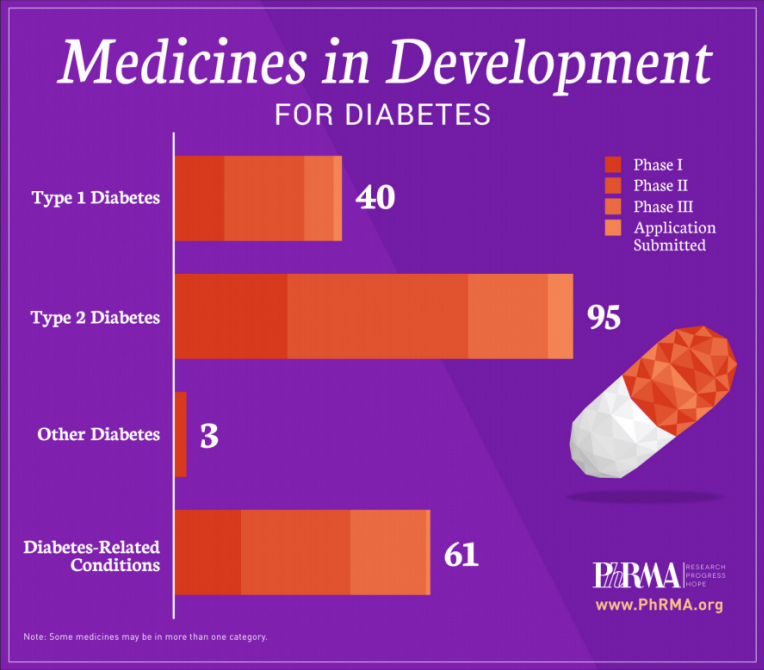Diabetes is a serious condition that effects more than 30 million Americans. While complications of the disease can be dire, there is hope. Biopharmaceutical researchers are helping patients manage the condition today and envision a bright outlook for future treatments.
Diabetes: The Patient Perspective
Diabetes is a general term for a chronic condition where there is too much glucose (sugar) in the blood. Normally, the pancreas makes insulin to help convert glucose into energy. With diabetes, the body either does not make enough insulin (type 1 diabetes) or does not use it properly (type 2 diabetes), leading to high blood glucose levels. Uncontrolled diabetes can lead to serious health complications, such as heart attack, lower-limb amputation, vision impairment and blindness.
Endocrinologist Dr. William "Bill" Chin has experience treating endocrine disorders, including diabetes. As chief medical officer at PhRMA, he works to ensure that patient voices are heard, drawing on his dual experience as a physician and as the parent of a child with diabetes. When Dr. Chin's son, Danny, was 15, he began experiencing telltale symptoms like excessive thirst. Dr. Chin diagnosed his son himself with type 1 diabetes.
He says, "I don’t think any parent is ever prepared to learn that one of our kids has developed a disease, particularly one that will be chronic. In many ways it’s forever, but the good news is we have great therapies that actually will allow a patient with diabetes to live a full and completely normal life if it’s well managed."
The Changing Landscape of Diabetes Treatment
The medications that Danny relies on have come a long way in the last ten years. A decade ago, a number of insulin options were available to patients, as well as oral and injected medications. Successful management of diabetes required constant and diligent monitoring of glucose levels. To control their glucose, patients needed multiple daily injections and/or multiple oral medicines.
In recent years, researchers have focused on making treatments much easier for patients, from fewer pills to less frequent injections. Careful monitoring and treatment are still needed, but current medicines in development offer a promising future.
There are 171 medicines currently in development for type 1 and type 2 diabetes and diabetes-related conditions. A new wave of treatments is offering patients better or more sustained control over their glucose levels. Other medicines in the pipeline may address diabetes-related complications that affect the kidneys, blood vessels and eyes. All of the medicines are in clinical trials or awaiting review by the FDA.

